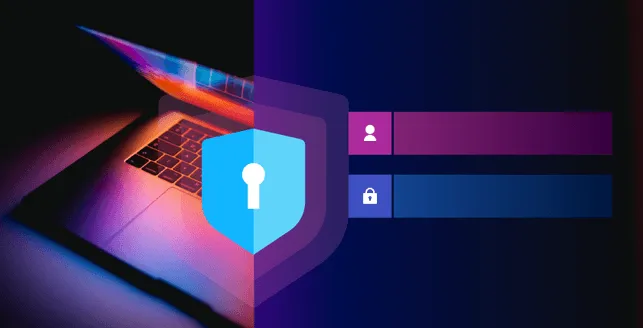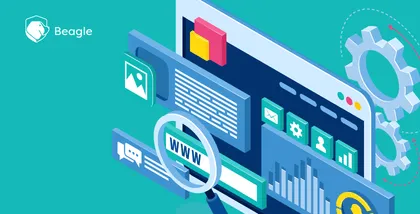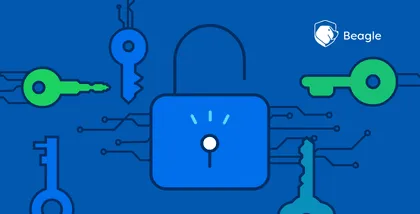
Are you worried that your login information may be displayed somewhere online or that your ISP may share your sensitive information?
Well, you’re not being paranoid, you’re just being rational.
When you’re doing your office work one day, you may find that all your files become corrupted due to ransomware.
You then see your bank balance become a big fat zero. That’s indeed frustrating.
Well, security breaches can happen anytime, and on the bright side, there is something you can do to prevent them.
Protecting your device and sensitive login information does not really require much effort. As a matter of fact, most of our tips below only need common sense. So, here you go:
1. Use an up-to-date antivirus program
Antivirus programs are designed to keep computer viruses at bay and keep you safe online, but it is only a part of what they do.
They also restore files that have been encrypted by ransomware and offer protection against trojans and bots that opens your computer to denial-of-service attacks.
You can definitely set your antivirus program to just run in the background.
However, in practice, you have to check it regularly to see if everything is just fine. If you open it and see a green icon, it means there is nothing to be worried about. Otherwise, you have to follow the instructions to stay on track.
Now, you may ask, isn’t this antivirus program already built into my OS?
Windows, for example, has the Defender Security Center that automatically protects your device against threats. But the thing is, Defender isn’t just as best as other third-party solutions. So, don’t just rely on it.
2. Use unique passwords
One of the common and easiest ways that hackers steal information from you is by using different usernames and password combinations.
For instance, hackers have stolen your username and password from a particular online service. They may use this information to log into various banking sites and other major online stores.
So, to protect your data and prevent this possible domino effect, it is advised to use a unique password for every online account that you have so that you can stay safe online.
Of course, memorizing complicated password combinations is not a job for humans.
For that, you need a password manager. When you use one, the only password that you have to remember is the master password. Once unlocked, this program will allow you to log into your online accounts automatically.
3. Rely on a VPN service
Every time you connect to the Internet using a network that you don’t own, be sure that you use a virtual private network.
For example, you go to the airport and connect to the free Wi-Fi network. In that case, you don’t know anything about the network’s security. It is likely that a hacker is on the same network. And without your idea, he could be stealing your files already.
With a VPN, your network traffic is encrypted and routed through a tunnel owned by the VPN provider. This means that not even the owner of the Wi-Fi network can see your data and activities so that you can stay safe online.
In addition, a VPN service also hides your IP address. Advertisers usually take note of your activities via the IP address that you are using.
So, when you surf the web while connected to a VPN, advertisers will see the IP address assigned to you by the VPN company.
4. Enable two-factor authentication
Two-factor authentication may sometimes be confusing to use, but it is a sure-fire way of making your accounts secure.
With 2FA you need to pass another authentication layer and not just enter your password and username to log into your accounts and stay safe online.
The idea of two-factor authentication is to verify your identity using at least two forms of authentication: something you are, something you know, or something you have.
Something you know is probably your password, while something you are can be your face or fingerprint. Finally, something you have could be your smartphone, where you will be asked to enter a code sent to you via text or tap a confirmation button on your app.
5. Pay via smartphones
Credit card systems are quite outdated, which means they may no longer be as secure as before. Well, we can’t do anything about these systems.
However, you can do something to make your transactions even more secure.
Instead of swiping your credit cards, use other modes of contactless payment such as UPI apps wherever you can.
So, how do you do that?
Setting up your smartphone as a means of payment is very easy. It often starts by linking your credit card. You will still use your credit card here to back up your payments. Once done, you should be all set.
How is a smartphone-based payment much better than a credit card?
The app usually generates a one-time passcode, or asks for your unique PIN which can be used for the current transaction.
Also, paying with a smartphone app reduces the risk of data theft and helps to stay safe online.
6. Clear your cache regularly
Do not underestimate your cache. It holds a lot of information about you, such as your searches, browsing history, cookies, and other personal data.
To protect all your data, make it a habit to clean your cache regularly.
To clear your cache, you simply have to press the Ctrl + Shift + Delete keys to launch a dialog box that allows you to choose what elements of the browser you wish to delete.
7. Disable the “save password” feature in your browser
Many browsers have an in-built password management solution, but we strongly recommend against using them. It is best to leave the password protection aspect to reliable password managers.
Why? Here’s something you should think about. Once you install a third-party password manager, it allows you to import your password from your browser’s storage. So, if your password manager can do that, other malicious entities can probably do the same.
8. Think before you click
One of the most important ways to keep your information secure while browsing online is by being smart about the things you click on.
Clickbait isn’t just about enticing you to click on a compilation of cute puppy videos.
It can also be a creative or great deals being offered via email or on social media platforms.
Make sure you don’t click on these links unless they are coming from a trusted source. And even so, you have to be careful as your trusted source might have also been attacked.
Wrapping up
Logging into your online accounts safely is quite challenging nowadays.
But you can help yourself by using unique passwords, VPN services, and two-factor authentication to start with.
Also, you can be smart about the things you click.
As long as you do all that, then your information will be safe and you can take the best measure to stay safe online.


